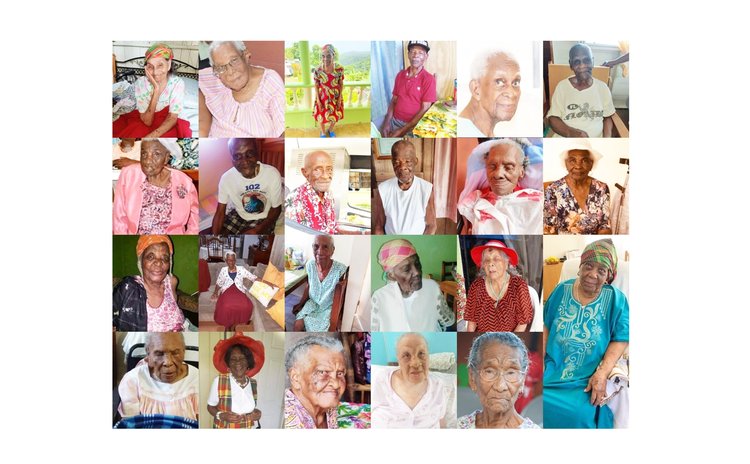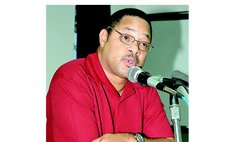Assisting Dominica's poor and elderly: Many clouds, a few drops of rain

Dominica is facing a crisis it is either unaware of or could not care less about. The nation's population is ageing rapidly; its youth is migrating in droves, birth rates are dropping alarmingly, and migrants, mainly from Haiti, are quickly replacing natives as the predominant demographic on the island.
Economist McCarthy Marie said as much in an article that the SUN published on April 22 2022, entitled "Count Down." Read the article here: http://sundominica.com/articles/count-down-6696/
Nevertheless, the most significant development that our planners should be concerned about is the rapidly increasing number of senior citizens relative to the youth. Nevertheless, Dominica is not alone in that category.
"Caribbean societies are ageing rapidly," states the Pan American Health Organisation (PAHO). "The share of the region's population aged 60 or more years is currently around 10 per cent, and the figure is expected to reach 16 per cent by 2025 and 25 per cent by 2050".
Worldwide, the situation is just as alarming. At least one person turns 60 every two seconds.
States the World Health Organisation (WHO), "By 2030, 1 in 6 people in the world will be aged 60 years or over. At this time, the share of the population aged 60 years and over will increase from 1 billion in 2020 to 1.4 billion. By 2050, the world's population of people aged 60 years and older will double (2.1 billion). The number of persons aged 80 years or older is expected to triple between 2020 and 2050 to reach 426 million".
In statistic-averse Dominica, the percentage of the Dominican population that is 60 and above is anyone's guess.
However, some people have estimated that figure at 13.5 per cent of the population. We anticipate that the recent census data, whenever it is released if it is ever made public, will shed some light on the actual status of Dominica's older persons.
An ageing population has severe implications for the government and its people. At the population level, advanced old age is associated with chronic diseases, poor health and disabilities, and circumstances that lower quality of life and increase medical spending, jeopardising other health programmes, says PAHO.
The WHO adds that national policies should ensure that social security systems, like the Dominica Social Security, guarantee elders' economic security and universal access to comprehensive primary healthcare services.
However, in Dominica, ageing is taking place in a context of decades-long appallingly low economic performance, changing intergenerational relations, fragile institutional structures, and lessening access to healthcare services.
Older people are often assumed to be frail or dependent and a burden to society. Public health professionals and the community must address these and other ageist attitudes, which can lead to discrimination and affect how policies are developed and the opportunities older people have to experience healthy ageing.
Hence, the theme for the 2023 observance of Month of the Elderly, "We are older. Not over," is appropriate.
Dominica's population is getting older, and the problems that this will cause for the country will not be over until the government addresses the country's economic issues, especially the acute poverty of its rural elderly and poor.
Although statistics on the number of old persons currently below the poverty line in Dominica are not readily available, in developing countries, generally older persons are among the poorest of the poor. HelpAge International estimates that over 100 million older persons live on less than US$1 a day. Dominica's population is ageing because more people live longer while the youth and middle-aged migrate.
However, we must note that Dominica has one of the world's highest number of centenarians per capita. At the last count, there were 11 centenarians in a population of less than 70,000. This was due to the centenarians' natural way of living and, no doubt about it, the resilience of our older folk who walked and worked a lot, ate a lot of natural foods and, following teachings of the Bible, loved a lot of their neighbours as they loved themselves.
Dominicans know this extraordinary phenomenon thanks to the Dominica Council on Ageing (DCOA). Still, we continue to wonder: What is keeping the government of Dominica from including Dominica's centenarian blessings in its promotion of our tourism product?
Nevertheless, the issue goes deeper. In their moments of sincerity, some officials of the DCOA will tell you that their organisation is doing its best under trying financial and human resource conditions.
The government is helping somewhat, as it must, but that help needs to be revised significantly upwards for such a crucially important organisation. The DCOA needs better offices with conference facilities, a care and recreational centre and more professionals committed to performing essential work in the field throughout Dominica.
As stated earlier, the DCOA must move more aggressively to face its challenges head-on. It must design and articulate its vision for the next decade; it must move beyond just organising and implementing a few annual activities like the Month of the Elderly; it must work with government and civil society to harness the experience and power of senior citizens; and it must bravely tell the authorities to put their money in adequate amounts where their mouths are.
The DCOA must begin aggressively exercising its vast and under-utilised power (with more significant numbers of older persons comes more power) to persuade the authorities to allocate the necessary resources to assist the vast number of poor, older persons.
Words without actions are like clouds without rain.




